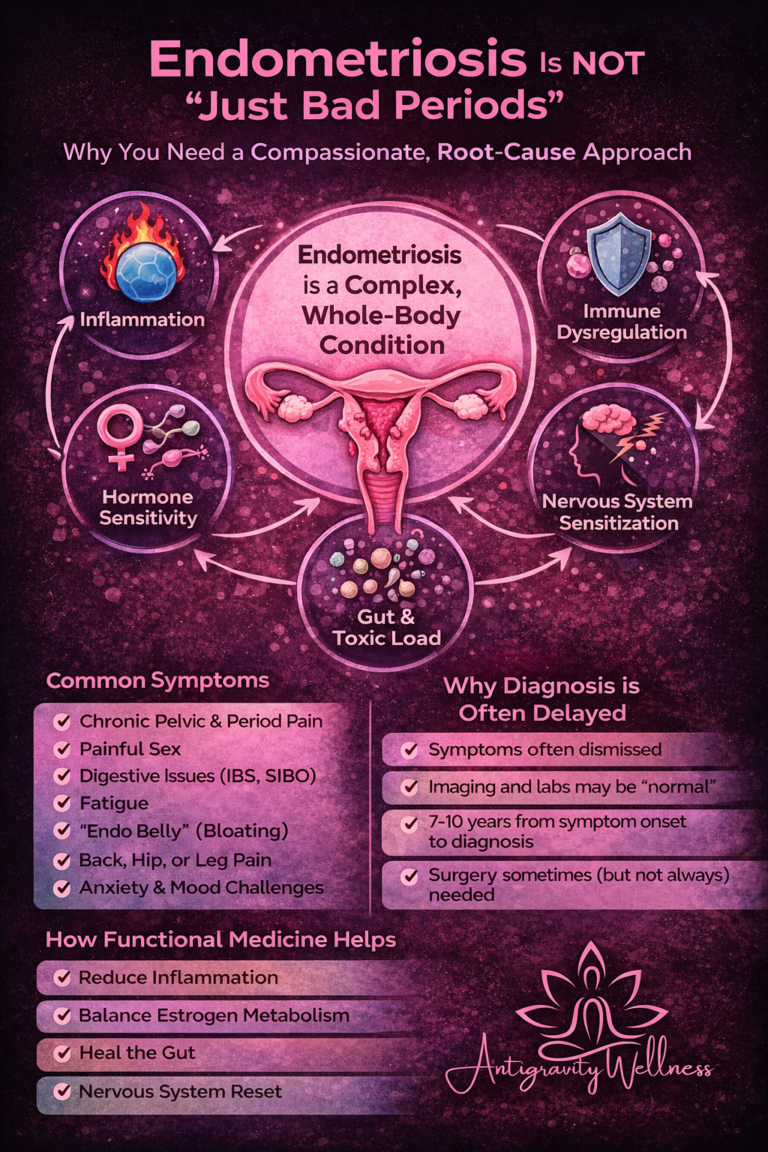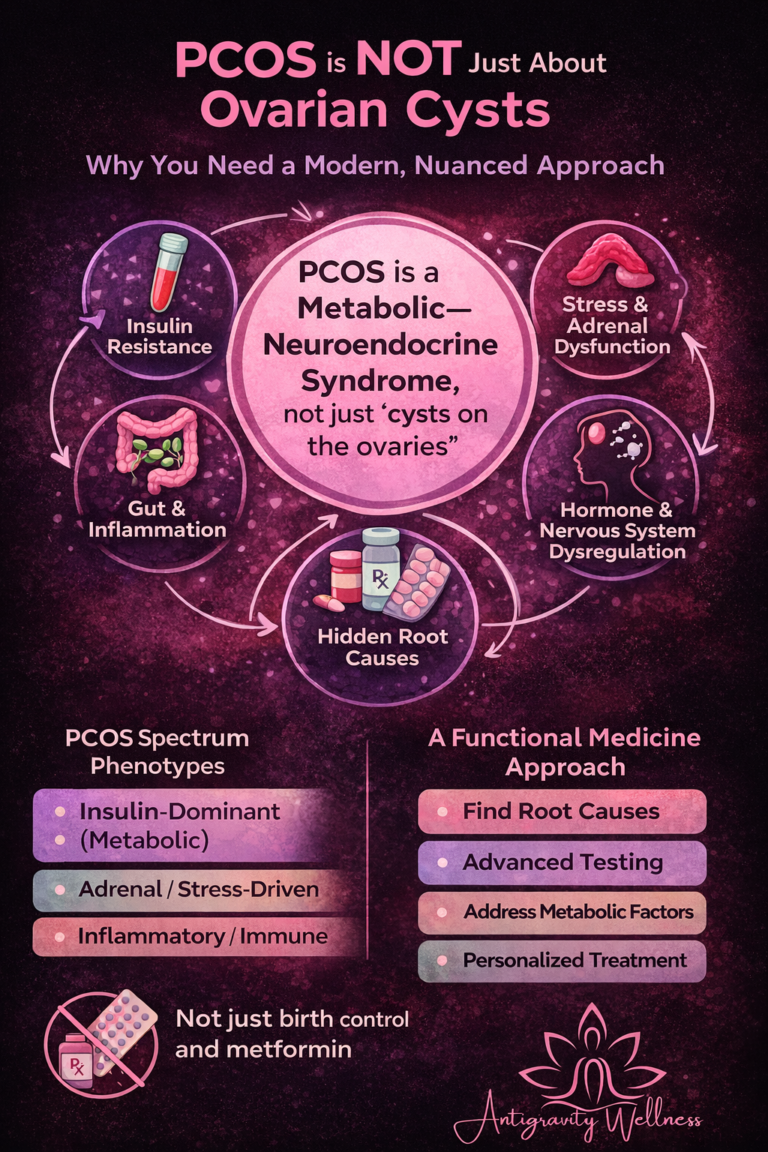
For many women navigating perimenopause and menopause, digestive issues and chronic inflammation are common yet often misunderstood symptoms. If you’ve been dealing with persistent bloating, irregular bowel movements, unexplained fatigue, or even systemic issues like brain fog and inflammation, it’s time to dig deeper—literally. The GI MAP Test (Gastrointestinal Microbial Assay Plus) is a revolutionary tool for uncovering the root causes of these symptoms, providing a detailed analysis of your gut health and its connection to overall well-being.
What is the GI MAP Test?
The GI MAP Test is a state-of-the-art stool analysis that uses DNA-based testing to evaluate the microbiome, detect pathogens, and assess digestive function. Unlike traditional tests, the GI MAP provides a comprehensive picture of your gastrointestinal health by identifying imbalances, infections, and markers of inflammation.
What Does the GI MAP Test For?
1. Pathogenic Bacteria
Identifies harmful bacteria like Clostridium difficile (C. diff), Salmonella, and Campylobacter that may cause gastrointestinal distress.
2. Commensal Bacteria
Evaluates beneficial bacteria levels, which are critical for digestion, nutrient absorption, and immune support.
3. Opportunistic Pathogens
Detects overgrowths of bacteria like Klebsiella and Citrobacter, which may exacerbate symptoms of dysbiosis or small intestinal bacterial overgrowth (SIBO).
4. Parasites
Identifies parasitic infections, such as Giardia or Blastocystis hominis, that may be causing chronic symptoms.
5. Fungi and Yeast
Screens for fungal overgrowths like Candida albicans, a common contributor to bloating, fatigue, and brain fog.
6. H. pylori
Detects Helicobacter pylori, a bacteria linked to ulcers, gastritis, and acid reflux.
7. Inflammatory Markers
- Calprotectin: A marker of gut inflammation, which can indicate conditions like inflammatory bowel disease (IBD).
- Secretory IgA: Measures immune function within the gut lining.
8. Digestive Markers
- Elastase-1: Assesses pancreatic enzyme production, essential for digestion.
- Occult Blood: Identifies hidden blood in the stool, which may signal gastrointestinal bleeding or other serious conditions.
How the GI MAP Test Enhances Gut Health
When combined with a targeted protocol like the 5R Approach (Remove, Replace, Reinoculate, Repair, and Rebalance), the GI MAP Test can:
- Identify Root Causes: Pinpoints the exact imbalances causing symptoms.
- Personalize Treatment: Allows for a tailored approach, addressing your unique gut microbiome and symptoms.
- Improve Overall Health: Enhances digestion, nutrient absorption, and systemic inflammation, alleviating symptoms that were previously resistant to treatment.
The Pros of GI MAP Testing
- Comprehensive: Provides detailed insights into the microbiome, pathogens, and gut function.
- Convenient: It’s an at-home test—collect your sample in the privacy of your home and send it to the lab.
- Actionable: Results are specific enough to create a customized treatment plan.
- Holistic Insight: Links gut health to systemic issues like skin conditions, mood disorders, and hormonal imbalances.
The Cons of GI MAP Testing
- Cost: Advanced testing can be expensive and may not be covered by insurance.
- Requires Expert Interpretation: The complexity of the results necessitates a trained practitioner to create an effective plan.
- Not a Standalone Solution: While it provides excellent data, it must be paired with lifestyle, dietary, and supplemental protocols for full effectiveness.
Why Gut Health is Integral During Perimenopause and Menopause
During perimenopause and menopause, hormonal shifts can disrupt the gut microbiome, increasing the risk of:
- Systemic Inflammation: Triggered by gut permeability (leaky gut) and imbalanced bacteria.
- Digestive Issues: Bloating, irregularity, and food sensitivities often emerge or worsen.
- Mood Changes: The gut-brain axis links gut health to mental well-being, influencing anxiety and depression.
Addressing gut health is crucial for improving these symptoms and enhancing overall quality of life during this transition.
Further Reading and Resources
- The Microbiome Solution by Dr. Robynne Chutkan
- The Gut-Immune Connection by Dr. Emeran Mayer
- Research Articles:
How Antigravity Wellness Uses the GI MAP Test
At Antigravity Wellness, we integrate the GI MAP Test into our holistic approach to caring for perimenopausal and menopausal women. We use this advanced testing to:
- Identify and address hidden imbalances in the gut.
- Develop personalized protocols that incorporate dietary, lifestyle, and supplemental interventions.
- Apply the 5R Protocol to repair gut health and alleviate persistent symptoms.
If you’re ready to uncover the root causes of your symptoms and regain control of your health, schedule a brief initial consult today to see how the GI MAP Test can transform your well-being.




